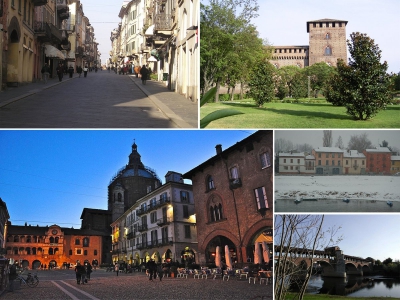The archbishop of Canterbury is the senior bishop and a principal leader of the Church of England, the ceremonial head of the worldwide Anglican Communion and the diocesan bishop of the Diocese of Canterbury. The current archbishop is Justin Welby, who was enthroned at Canterbury Cathedral on 21 March 2013. Welby is the 105th in a line which goes back more than 1400 years to Augustine of Canterbury, the "Apostle to the English", sent from Rome in the year 597. Welby succeeded Rowan Williams.From the time of Augustine until the 16th century, the archbishops of Canterbury were in full communion with the See of Rome and usually received the pallium from the pope. During the English Reformation, the Church of England broke away from the authority of the pope. Thomas Cranmer became the first holder of the office following the English Reformation in 1533, while Reginald Pole was the last Roman Catholic in the position, serving from 1556 to 1558 during the Counter-Reformation. In the Middle Ages there was considerable variation in the methods of nomination of the archbishop of Canterbury and other bishops. At various times the choice was made by the monks of the Cathedral Priory (before the Dissolution of the Monasteries under Henry VIII), the pope, or the king of England. Since the English Reformation, the Church of England has been more explicitly a state church and the choice is legally that of the Crown; today it is made by the reigning monarch on the advice of the prime minister, who in turn receives a shortlist of two names from an ad hoc committee called the Crown Nominations Commission.
Pavia (UK: , US: , Italian: [paˈviːa] (listen), Lombard: [paˈʋiːa]; Latin: Ticinum; Medieval Latin: Papia) is a town and comune of south-western Lombardy in northern Italy, 35 kilometres (22 miles) south of Milan on the lower Ticino river near its confluence with the Po. It has a population of c. 73,086. The city was the capital of the Kingdom of the Lombards from 572 to 774.
Pavia is the capital of the fertile province of Pavia, which is known for a variety of agricultural products, including wine, rice, cereals, and dairy products. Although there are a number of industries located in the suburbs, these tend not to disturb the peaceful atmosphere of the town. It is home to the ancient University of Pavia (founded in 1361), which together with the IUSS (Institute for Advanced Studies of Pavia), Ghislieri College, Borromeo College, Nuovo College, Santa Caterina College, and the Istituto per il Diritto allo Studio (EDiSU), belongs to the Pavia Study System. Pavia is the episcopal seat of the Roman Catholic Bishop of Pavia. The city possesses many artistic and cultural treasures, including several important churches and museums, such as the well-known Certosa di Pavia.
The Central Hospital of Pavia -- Policlinico San Matteo -- is one of the most important hospitals in Italy.

 English
English  español
español  français
français  português
português  русский
русский  العربية
العربية  简体中文
简体中文 
